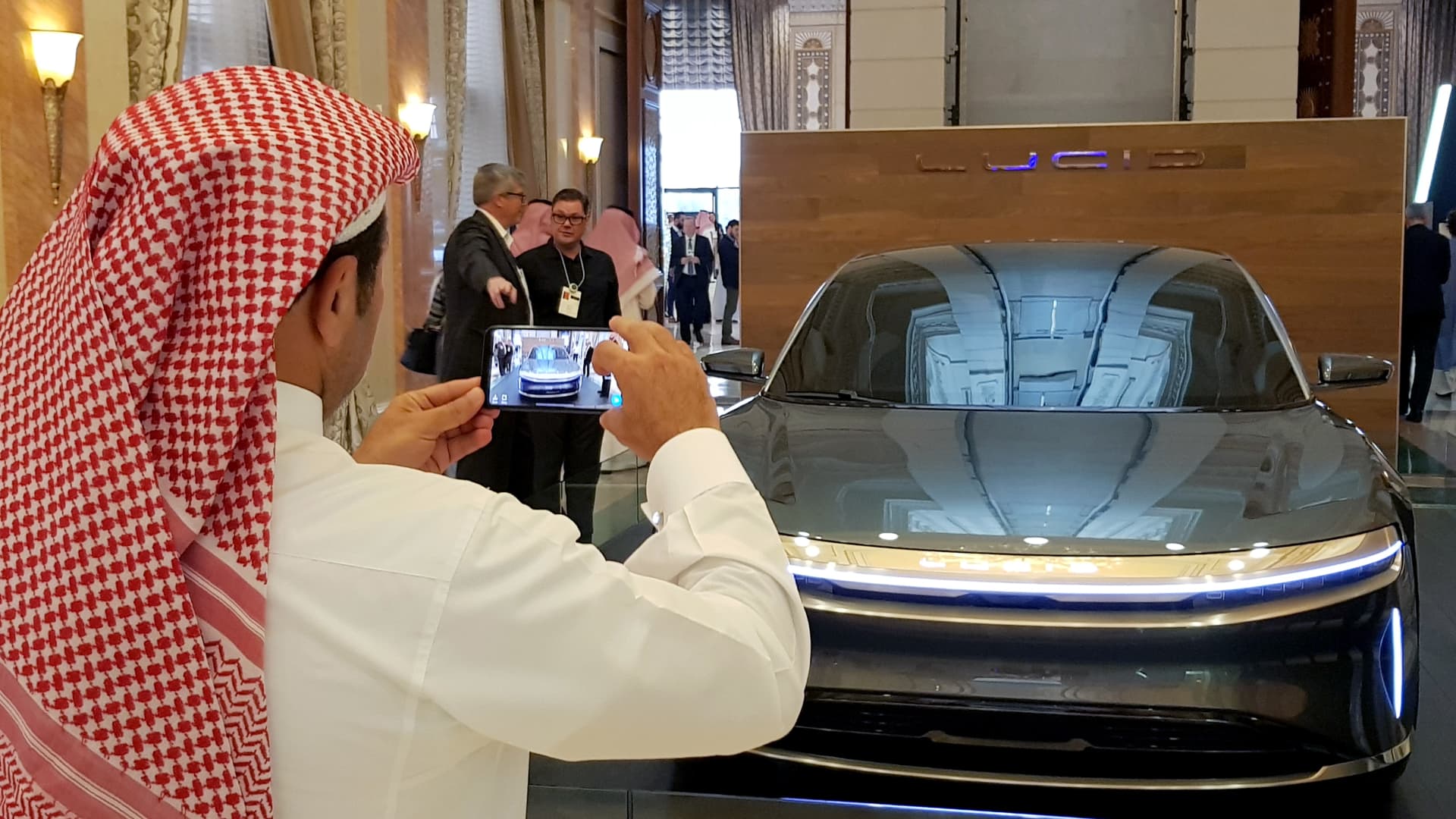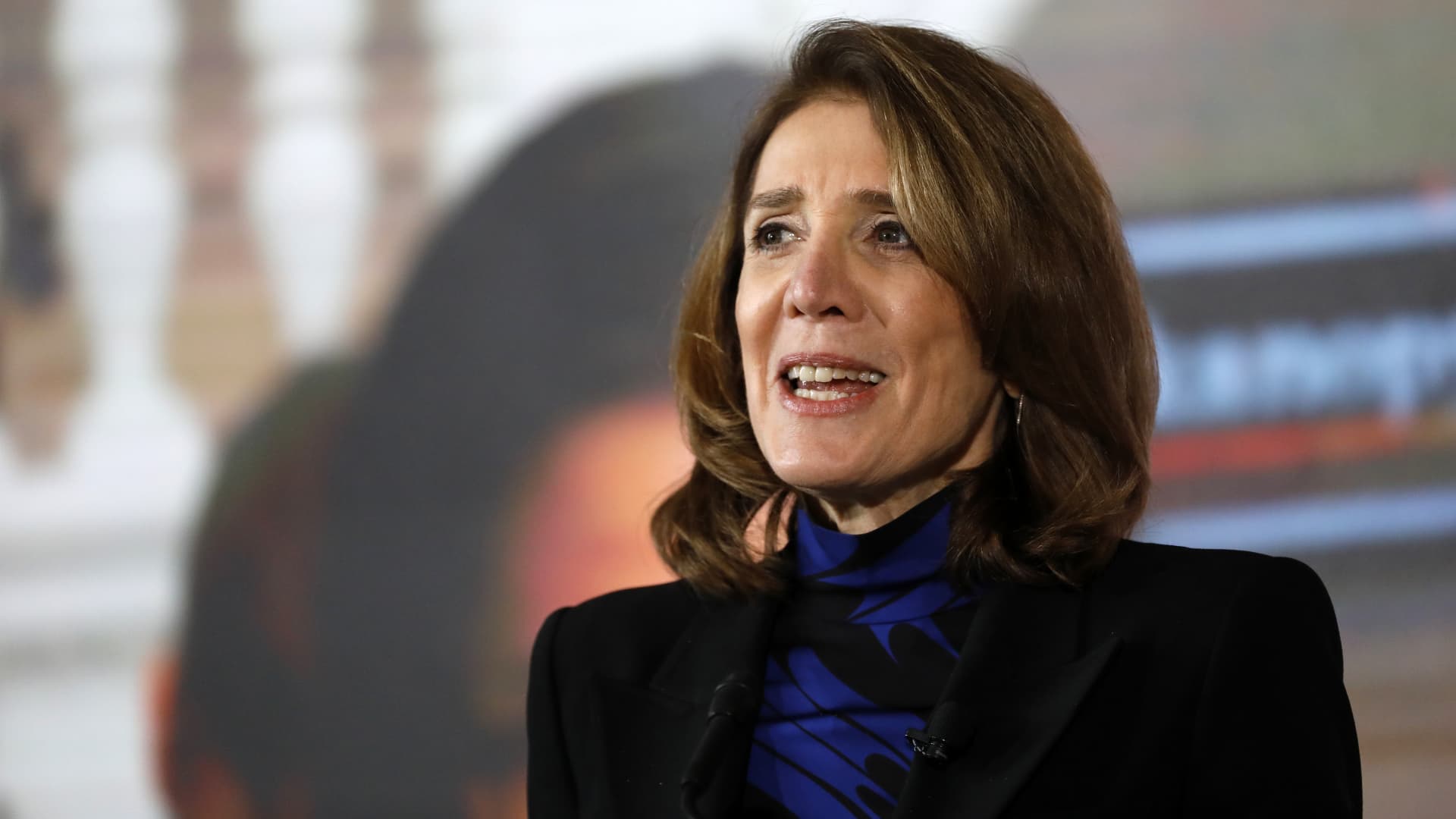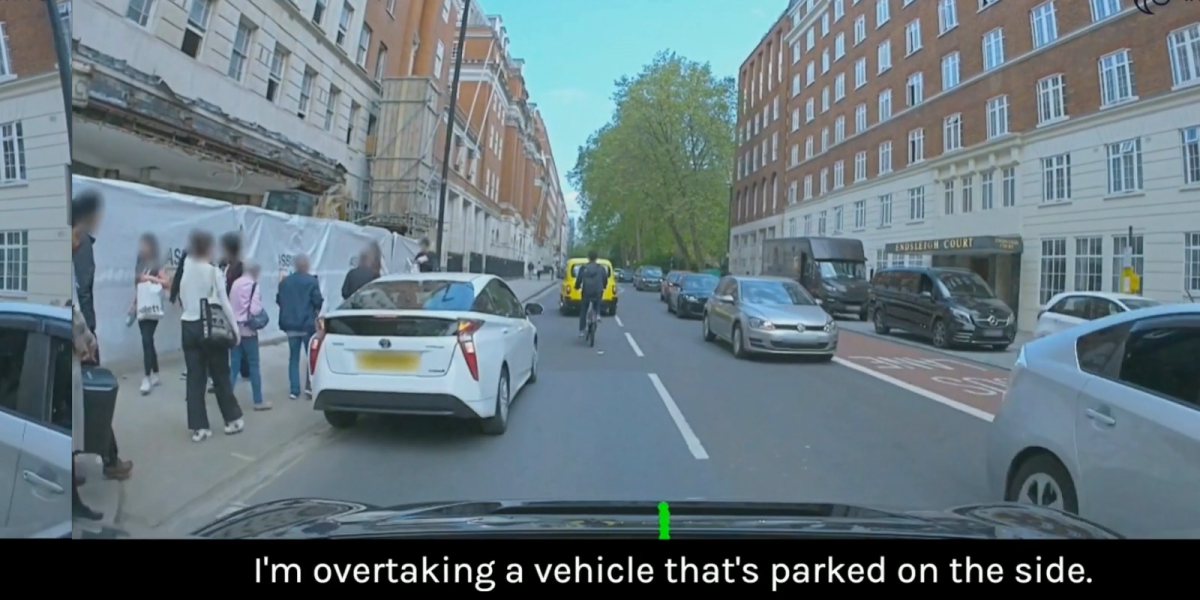How the Middle East is Preparing for a Post-Oil Transportation Era

American electric vehicle manufacturer Lucid Group will open its first foreign plant in Saudi Arabia, the company announced.
Javier Blas | Bloomberg | Getty Images
When BlackRock, the world’s largest asset manager, announced this week that it was adding the head of the world’s largest oil company, Saudi Aramco, to its board of directors, some investors may have been caught off guard, given BlackRock’s market leadership when it comes to investing in a low-carbon future. But CEO Larry Fink, who has been under intense pressure over his ESG embrace, specifically cited Saudi Aramco CEO Amin Nasser’s “understanding of the global energy industry and the drivers of the transition to a low-carbon economy.”
The Middle East, a region long known for its oil and gas wealth, is investing in a new, more sustainable future potentially dominated by electric vehicles.
Saudi Arabia is working on its own Ceer brand of electric cars. He also owns about 60% of the luxury electric car maker Lucid Motorsin which his sovereign wealth fund recently invested another $1.8 billion.
The electric car sector in Israel is booming: deliveries of electric cars in the first half of this year are more than 210% higher than in the same period last year. In Bahrain, American manufacturing corporation Gauss Auto partnered with Bahrain’s Marson Group this year to open an electric car manufacturing plant in the country.
“There is a growing recognition that countries need to do something about the climate,” said Tammy Klein, chair of the Electric Vehicle Council. “I think Middle Eastern countries are no different.”
“These government industry partnerships, we also have them here in the U.S. We have them in Europe and around the world, not just in electrification, but also in charging and other fuels. So what they’re doing, I think, is very standard. And I think it makes a lot of sense,” Klein said.
One of the latest initiatives to bring the future of electric vehicles to the Middle East is the UAE’s partnership with Einride, an autonomous electric trucking company headquartered in Sweden and focused on the logistics market.
A little over a month ago, Einride, ranked 13th on CNBC’s Disruptor 50 list for 2023, announced a partnership with the UAE Ministry of Energy and Infrastructure to build sustainable shipping in the region. It’s just a memorandum of understanding for now, but it marks Einride’s entry into the Middle East and a plan to build the region’s largest fleet of autonomous and electric trucks, which is expected to take five years to complete.
“This collaboration gets to the heart of what Einride delivers – the transition to efficient and sustainable shipping that is fully electric,” said Robert Falk, the company’s CEO and founder, in a statement.
Dubbed Project Falcon Rise, Einride plans to deploy a freight mobility network of more than 300 miles in Abu Dhabi, Dubai and Sharjah, consisting of 2,000 electric trucks, 200 autonomous trucks and eight charging stations.
“By partnering on this deal, we will be able to demonstrate how entire regions can make the transition in a smart and cost-effective way,” Falk said.
Klein was positive about the strategic idea, if only an idea for now. “I think Einride has a really interesting approach in terms of the portfolio they offer for electrification and autonomy. And I think what they’re offering is really particularly appropriate for a country like the UAE, it’s very contained,” she said.
A common problem that arises when considering nationwide electrification is geographic location. The natural geography and size of the country affect the electrification problem. For example, in the United States, cross-country travel would require navigating a vast terrain. Klein said the UAE, however, is a “closed country”, making full electrification easier.
Like the UAE, the Saudi Arabian government is also funding infrastructure to allow for the increased use of electric vehicles. Since 2021, the Saudi Electric Vehicle Charging Infrastructure Development Initiative (SEVCIDI) has been working towards the goal of installing 50,000 home charging stations by 2025.
Major automotive players in the US and China are also vying for a foothold in the Middle East electric vehicle market. GM is preparing to launch the Cadillac Lyriq, GMC Hummer EV and Chevrolet Bolt EUV in the Middle East this year, while Ford aims to launch electric vehicles in the region in 2024.
China is also moving into the region through its growing electric vehicle manufacturing sector. Saudi Arabia’s Ministry of Investment has just signed a $5.6 billion deal with Human Horizons, a Chinese electric car maker. The UAE-owned investment vehicle has a 7% stake in Nio, an electric vehicle company based in Shanghai, after it invested $738.5 million in the electric vehicle maker last month.
Other Chinese electric cars are also expanding into the market, including Zeekr in Israel and China’s BYD, long backed by Warren Buffett’s Berkshire Hathaway, in Jordan.
Oil does not go away. Global oil demand will rise to 110 million barrels per day in about 20 years, boosting global energy demand by 23%, OPEC said last month. ″Oil is indispensable for the foreseeable future,” said OPEC Secretary-General Haitham Al Ghais, speaking at the inaugural Energy Asia conference held last month in Kuala Lumpur.
Sanctions imposed by the EU and the US have “dramatically changed energy flows, but they have not limited or contained them,” Chevron CEO Mike Wirth said at a recent Aspen Festival of Ideas. “That’s why the price of oil today is $70,” he said. “The market is still well supplied.”
The transition to electric vehicles is approaching, but the required time and investment are huge. Wirth said he has no doubt GM will meet the goal of ending production of internal combustion engine vehicles by 2035, but the new supply chains that need to be created in batteries and minerals and metals are a big challenge.
Nevertheless, the partnership between Einride and the UAE, along with the general wave of EV excitement, could pave the way for other countries in the region to take action and shift their own infrastructure to support EVs and combat climate change.




